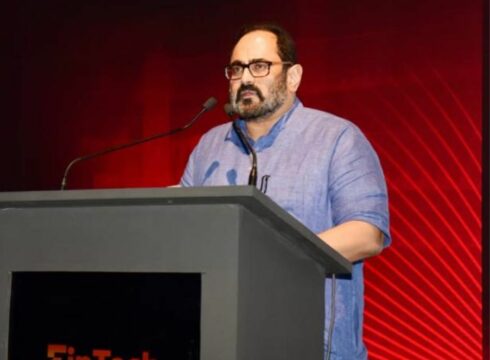SUMMARY
MeitY’s presentation, prepared for the consultations on the Digital India Act, highlighted the urgent need for a specialised and dedicated adjudicatory mechanism for online civil and criminal offences
The adjudicatory mechanism should be easily accessible, resolve cyber disputes, and deliver timely remedies to citizens, among others, the ministry said
The government held the first consultation on the proposed Digital India Act on Thursday in Bengaluru
Inc42 Daily Brief
Stay Ahead With Daily News & Analysis on India’s Tech & Startup Economy
The Ministry of Electronics and Information Technology (MeitY) on Friday (March 10) released its presentation on the proposed Digital India Act, 2023, which emphasised the “urgent need for a specialised and dedicated adjudicatory mechanism for online civil and criminal offences”.
The presentation, which explained the background, goals, and the need for the new law, was shown during the consultation held by MeitY on the Digital Indian Act in Bengaluru on Thursday. It said that the adjudicatory mechanism should be easily accessible, resolve cyber disputes, and deliver timely remedies to citizens, among others.
It must be noted that the Centre is looking to soon replace India’s existing and primarily digital law, Information Technology (IT) Act, 2000, with the Digital India Act. The government has often highlighted the need to make the internet open, safe, trusted and accountable. MeitY claims that the Digital India Act will help in attaining these goals and would address the new challenges in today’s fast-evolving and growing internet space.
The first consultation on the proposed law was attended by around 300 stakeholders. The Bill would reportedly be ready by July 2023.
During the consultation, Union Minister of State for Electronics and IT Rajeev Chandrasekhar said that the proposed Digital India Act aims to help develop India as a globally competitive innovation and entrepreneurial ecosystem.
“Internet that began as a force of good has today become vulnerable to various types of complex user harms like catfishing, cyber stalking, cyber trolling, gaslighting, phishing, revenge porn, cyber-flashing, dark web, women and children, defamation, cyber-bullying, doxing, salami slicing, etc and there is an urgent need for a specialised and dedicated adjudicatory mechanism for online civil and criminal offences,” he said.
As per the presentation, the current IT Act has several limitations, including a lack of comprehensive provisions on user rights, trust and safety. Besides, it also lacks a distinct regulatory approach for “harmful” and “illegal” content, and converged, coordinated, and harmonised institutional regulatory bodies, among others.
Through the Digital India Act, MeitY said that it was looking to ensure more online safety by adjudicating user harm against revenge porn, cyber-flashing, dark web, and more, ensuring digital user rights, including the right to be forgotten.
Besides, there are also proposals for classifying the intermediaries into various categories such as ecommerce, digital media, gaming, OTT platforms, and more, and have separate rules for each class of intermediaries.
The document called for adjudicatory and appellate mechanisms for accountable and responsive digital operators, disclosure norms for data collected by data intermediaries, and ethical use of AI-based tools to protect users’ rights and choices.
The new law also aims to prevent concentration of market power and gatekeeping, distortions through regulation of dominant adtech platforms, app stores, etc, as per the ministry.
It must be noted that big tech companies like Google, Meta, and Twitter have been under scrutiny in India for violation of various norms, and the Centre is trying to rein in these players.
The government has been focused on framing new laws for the digital space in line with the requirements of India’s fast-evolving digital ecosystem. It has released multiple new norms in the recent past including the Telecommunications Bill and the Digital Personal Data Protection (DPDP) Bill.
Note: We at Inc42 take our ethics very seriously. More information about it can be found here.


